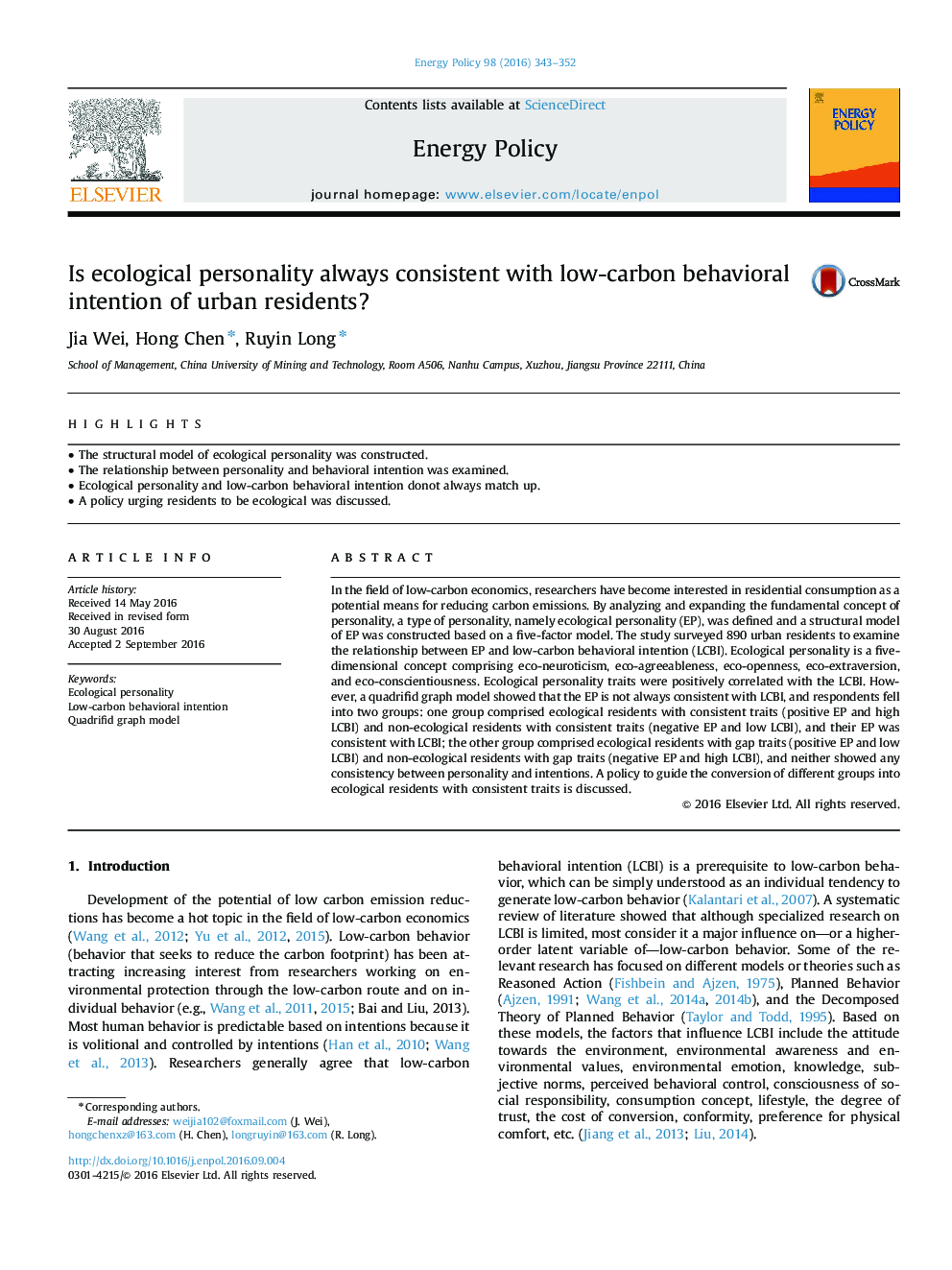| Article ID | Journal | Published Year | Pages | File Type |
|---|---|---|---|---|
| 7398387 | Energy Policy | 2016 | 10 Pages |
Abstract
In the field of low-carbon economics, researchers have become interested in residential consumption as a potential means for reducing carbon emissions. By analyzing and expanding the fundamental concept of personality, a type of personality, namely ecological personality (EP), was defined and a structural model of EP was constructed based on a five-factor model. The study surveyed 890 urban residents to examine the relationship between EP and low-carbon behavioral intention (LCBI). Ecological personality is a five-dimensional concept comprising eco-neuroticism, eco-agreeableness, eco-openness, eco-extraversion, and eco-conscientiousness. Ecological personality traits were positively correlated with the LCBI. However, a quadrifid graph model showed that the EP is not always consistent with LCBI, and respondents fell into two groups: one group comprised ecological residents with consistent traits (positive EP and high LCBI) and non-ecological residents with consistent traits (negative EP and low LCBI), and their EP was consistent with LCBI; the other group comprised ecological residents with gap traits (positive EP and low LCBI) and non-ecological residents with gap traits (negative EP and high LCBI), and neither showed any consistency between personality and intentions. A policy to guide the conversion of different groups into ecological residents with consistent traits is discussed.
Related Topics
Physical Sciences and Engineering
Energy
Energy Engineering and Power Technology
Authors
Jia Wei, Hong Chen, Ruyin Long,
